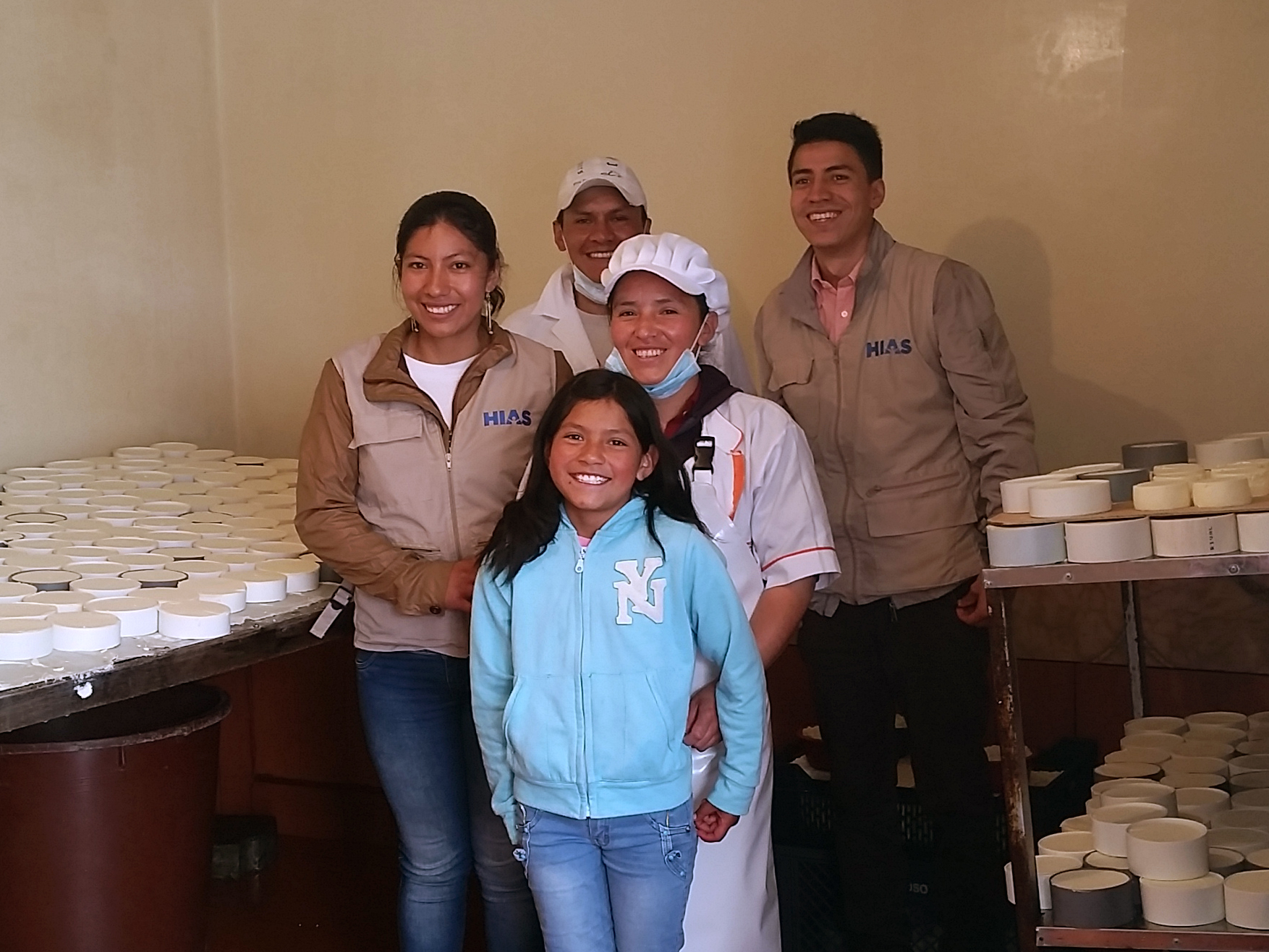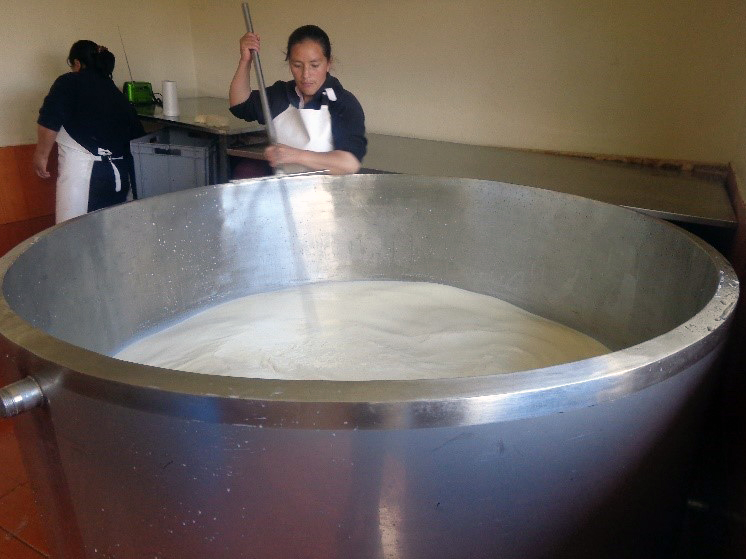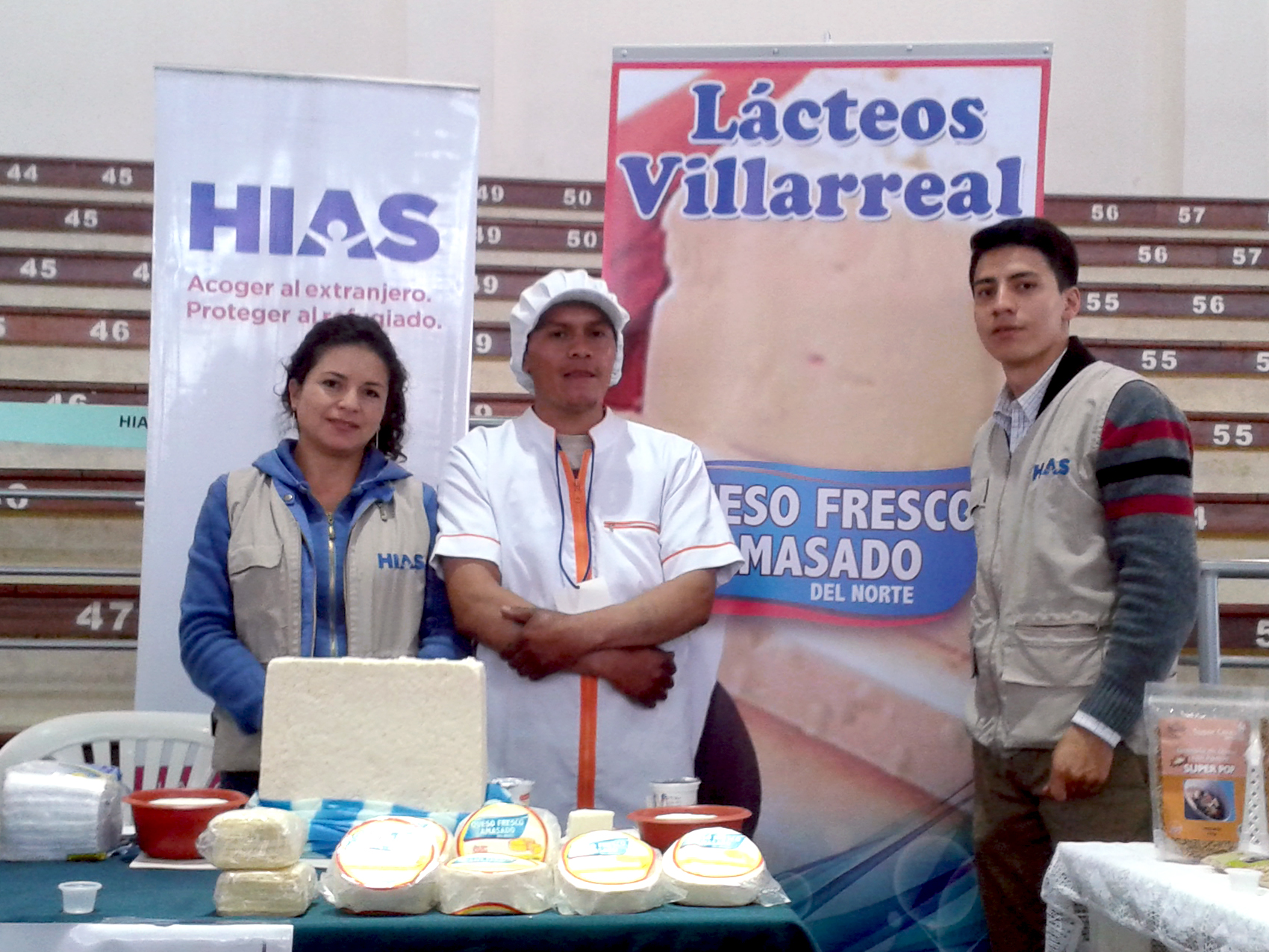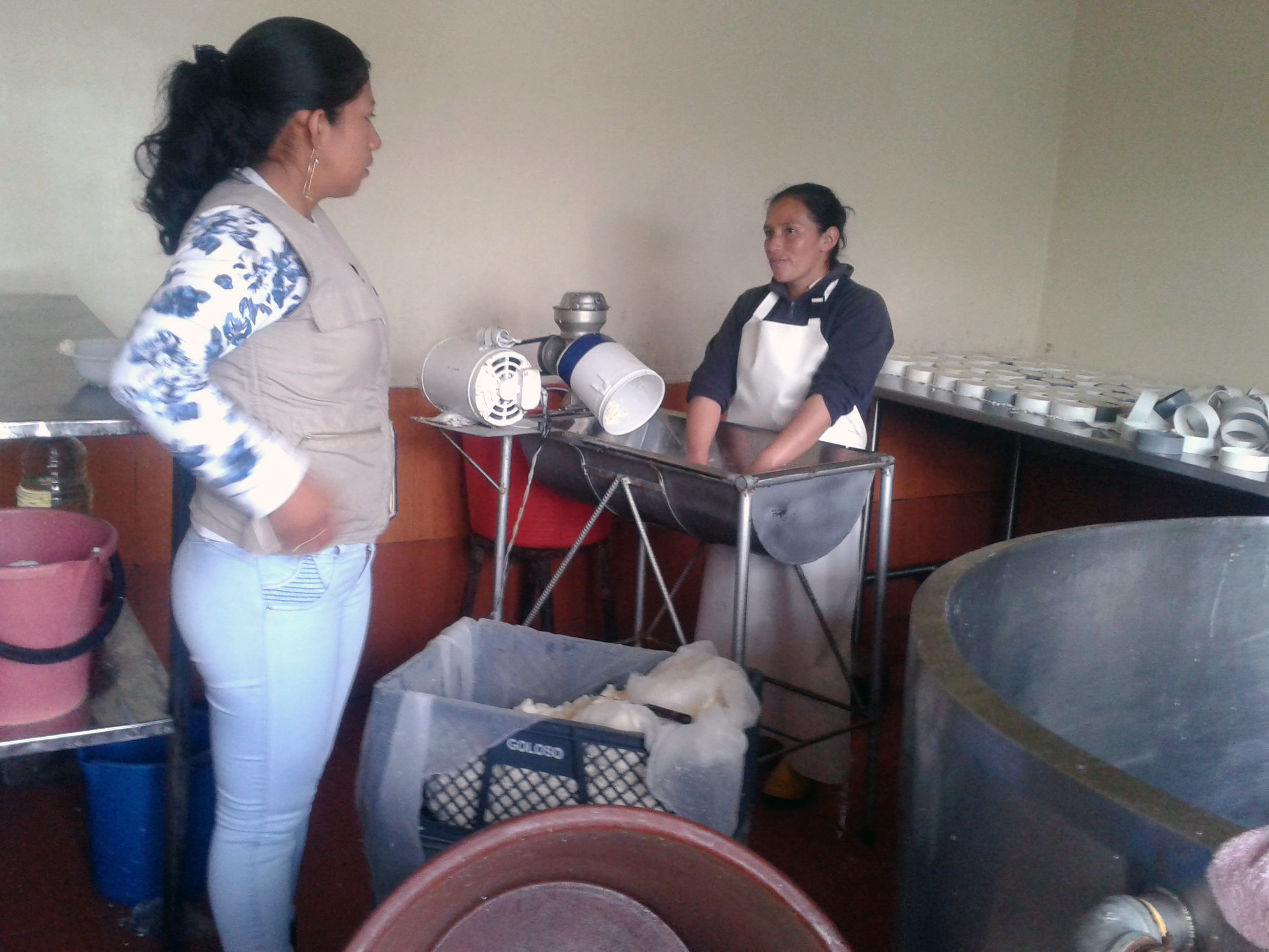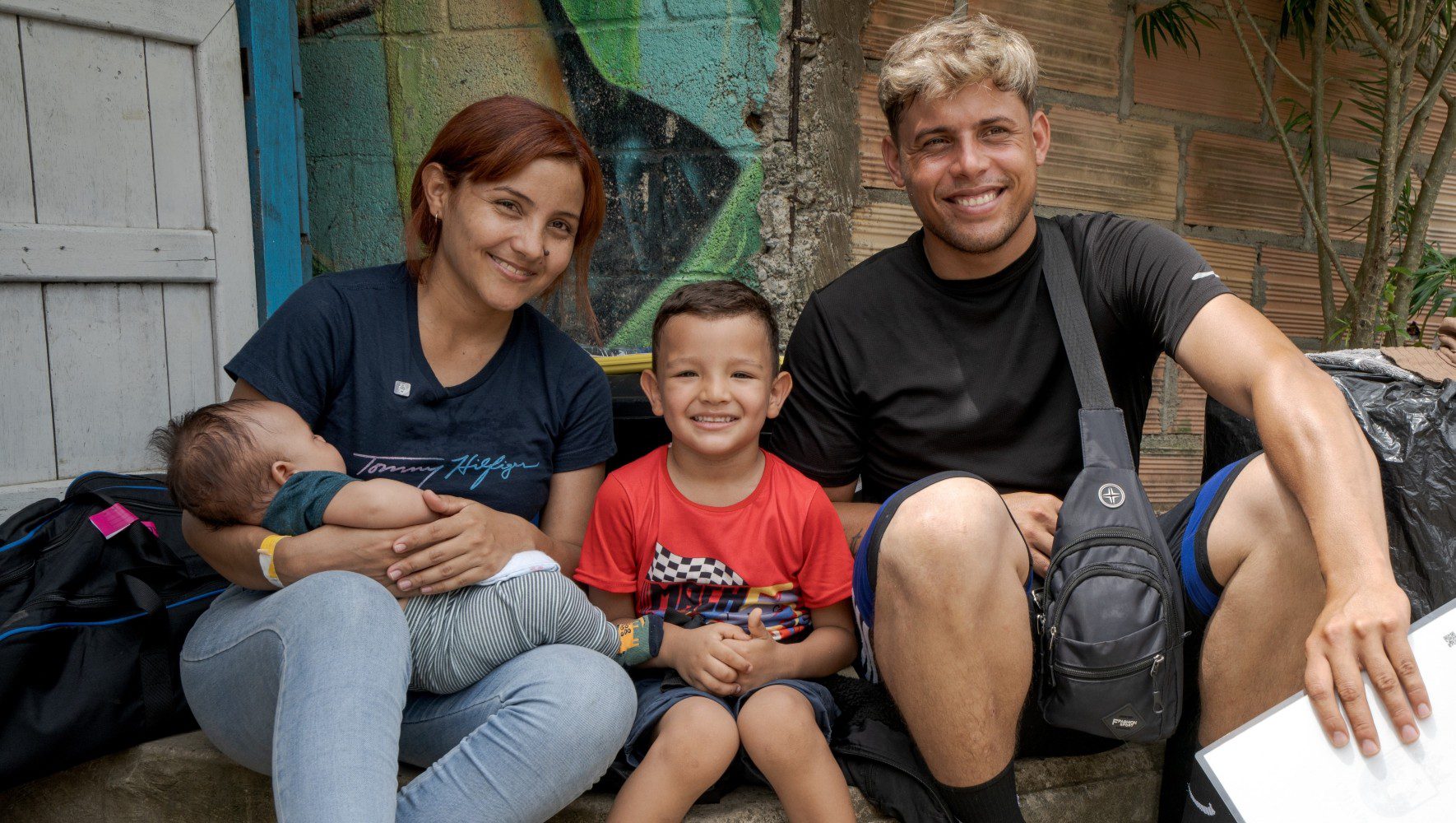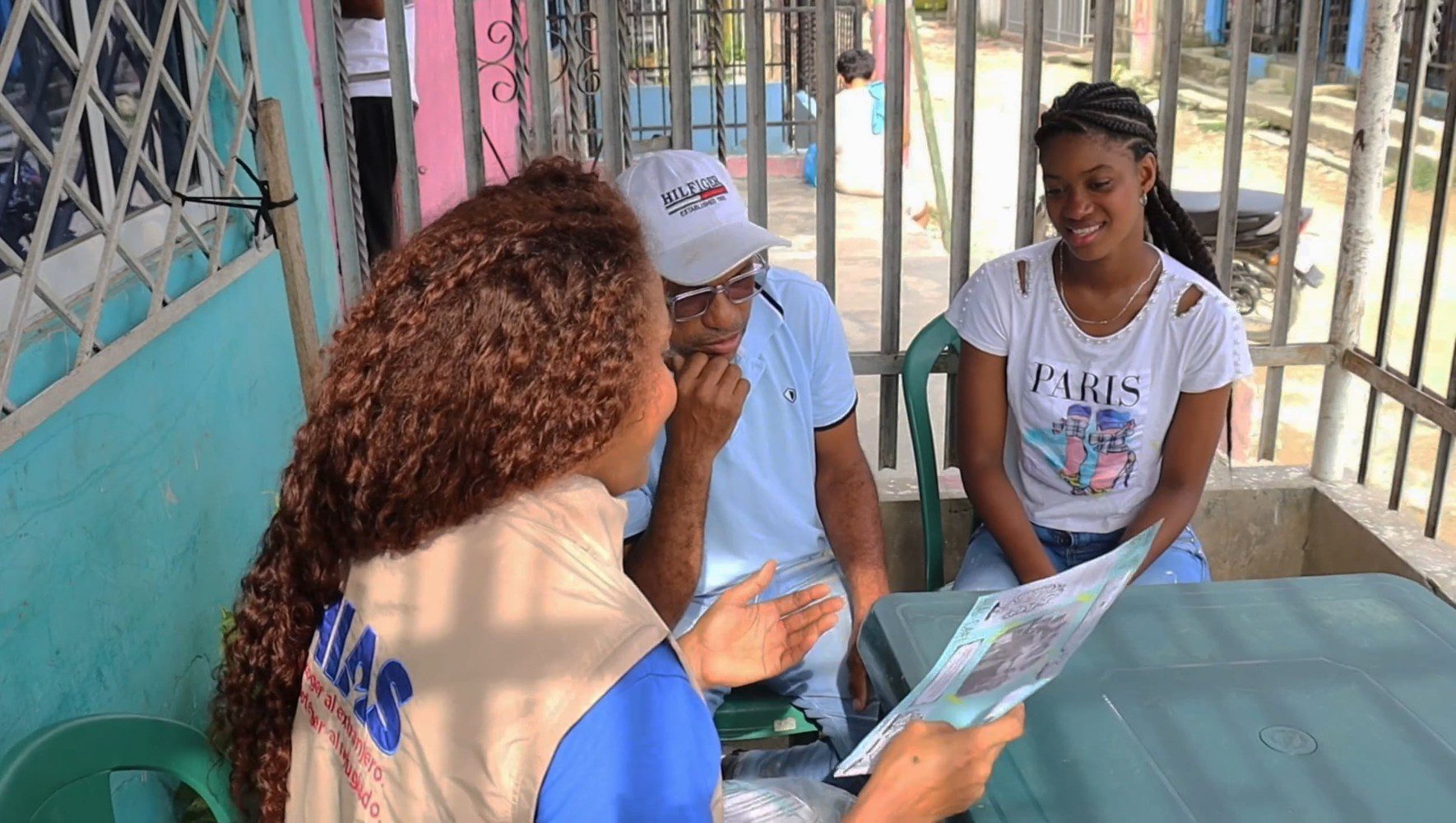How One Refugee Family in Ecuador Turned Cheese Into Business Success
By Rachel Nusbaum, HIAS.org
Nov 17, 2016
Maria Eugenia knew she needed to get her family away from the violence in their hometown of Túqueres-Nariño, Colombia. The area is in a “red zone”—meaning it is essentially a war zone, with ongoing confrontations between the army and FARC guerrillas. So in February 2012, she and her partner Arturo gathered their three children and fled to Ecuador.
The family arrived in San Gabriel, a town near the northern border of Ecuador. Arturo and Maria went to work on a farm, but this work was not enough to support them and they were unable to cover their basic expenses. So the family moved to Tulcán looking for better opportunities. It was in Tulcán that they first met HIAS.
The city of Tulcán was also struggling economically at the time, but this did not deter María Eugenia. Rather than being intimidated by the economic crisis, she took the initiative to start her own business. She decided to make and sell a traditional cheese called queso amasado, which roughly translated means kneaded cheese.
Queso amasado is a white, salty cheese similar to the Spanish queso fresco. This type of cheese, unique to Ecuador, comes from Tulcán but is very popular nationwide. After the cheese has solidified, it is kneaded by hand, giving it a pleasant consistency. Queso amasado is commonly eaten with fritada, a traditional dish made with fried pork, or with corn, potatoes and other local tubers, like camote. This type of cheese is particularly popular in the Andean region where Maria Eugenia now lives.
In order to ensure that Maria Eugenia had the knowledge and skills she needed to succeed, HIAS Ecuador provided her with business training, giving her information on how to start a small business and manage her finances. With great effort and excitement, the couple set up the new business in their home. They launched in 2014.
The business faced some commercial difficulties that first year, however, due to the cheap food being smuggled out of Colombia and undercutting prices in Ecuador. HIAS helped them identify new clients for their cheese, allowing them to dramatically increase their production to more than 300 units per day.
Just one year later, thanks to the business’ growth and the support of the local community, daily sales were strong enough that Maria Eugenia and Arturo were able to cover the costs of production, as well as their family’s personal expenses. They were even able to start saving, putting away $80 each month.
In fact, business was so good that they hired their first employee: a relative who is also a refugee.
With hard work and persistence, Maria Eugenia and Arturo were able to get the permits and registrations they needed, including sanitary registration for their products, a small business certificate from the Productivity Ministry, an operating permit from the Regulation and Sanitary Control Agency and a city permit to sell their cheese commercially.
Helping beneficiaries understand the importance of getting all the required permits for their business development is a regular part of HIAS’ livelihoods work. HIAS staff assists beneficiaries throughout the whole (often long) process of obtaining all the necessary permits and provides ongoing mentorship focused on developing strategies to ensure their businesses will be sustainable in the long term.
Now that they have all the requisite permits and certifications, Maria Eugenia and Arturo are able to sell their products nationally. You can buy their cheese, Lácteos Villareal, in Tulcán, Quito and San Lorenzo, Ecuador, and HIAS is helping them to further expand their business.
“HIAS Ecuador is proud to support refugee entrepreneurs like Maria Eugenia and Arturo, who have the determination and creativity to support themselves in their new homes,” said Galo Quizanga, a livelihoods coordinator at HIAS Ecuador, who has worked closely with the family. “We offer everything from seminars on basic business skills to guidance on marketing.”
“As we’ve seen, supporting refugee entrepreneurs like Maria Eugenia can have results that are profitable, and delicious! But most importantly, such ventures help refugees rebuild their lives and support their families—something we all hunger for,” Quizanga said.
